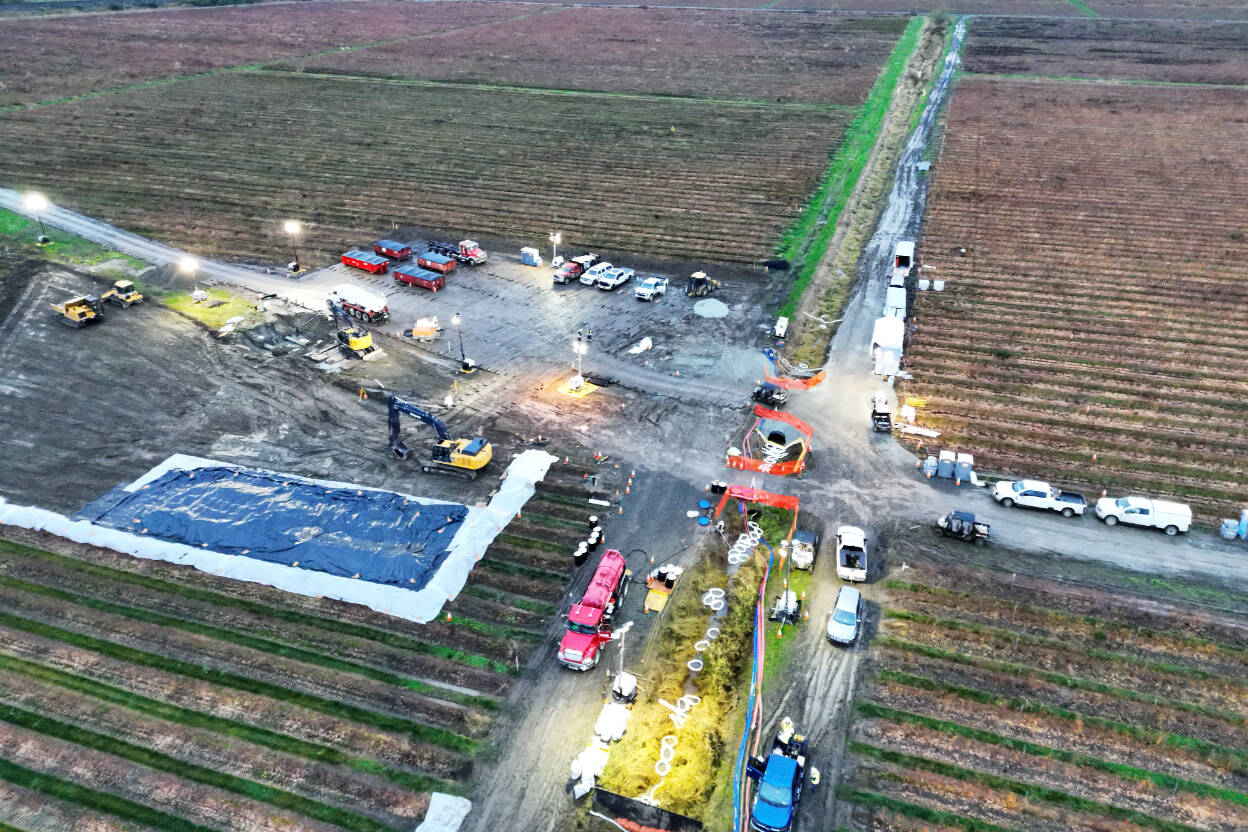EVERETT — BP’s Olympic Pipeline is pumping oil again after a leak east of Everett led to a nearly two-week shutdown of the system, causing airlines that rely on the jet fuel to scramble.
Following Monday’s testing, the pipeline was partially restarted Tuesday morning, a statement from BP said.
The system is now sending needed fuel to Sea–Tac, allowing airlines to resume normal operations after the stoppage caused flight disruptions.
“We have discontinued all planned fuel stops but will continue to tanker and truck in additional fuel on a reduced basis as the pipeline increases to normal capacity,” an Alaska Airlines statement posted on Tuesday said. “No other operational impacts are expected.”
Delta Airlines is also back to normal operations as of Tuesday, airline spokesperson Samantha Moore Facteau said in an email.
The Olympic Pipeline is a system of 400 miles of pipes that transport jet fuel, diesel and gasoline from four refineries along Puget Sound to the Seattle area, Sea-Tac and further south to Vancouver and Portland.
Washington Gov. Bob Ferguson and Oregon Gov. Tina Kotek declared emergencies over the stoppage, temporarily waiving state regulations limiting the number of hours commercial motor vehicle operators can drive when transporting jet fuel as an effort to mitigate travel disruptions.
BP was alerted to the leak on Nov. 11 when crews found a sheen in a drainage ditch in a field near Lowell-Snohomish River Road.
At the site of the leak, the system consists of two parallel pipes, one of which is 16 inches wide and one that is 20 inches wide. BP found the leak on Nov. 11, temporarily shutting down both pipes, reopening the smaller one briefly before once again shutting down the entire system on Nov. 16.
The company is developing a timeline for full repair. No oil has been observed outside of the immediate response area as of Tuesday afternoon and response teams have deployed cleanup equipment at the site.
The Washington Department of Ecology fined BP $3.8 million on Tuesday for a 2023 spill near Conway, where a corroded nut on the Olympic Pipeline led to 21,000 gallons of gasoline being released, 4,000 gallons of which ran into a nearby fish-bearing stream.
Response crews from the state agency worked for three months to remove 12,000 cubic yards of contaminated soil and 330,000 gallons of oily water from the site, a Tuesday press release stated.
Eliza Aronson: 425-339-3434; eliza.aronson@heraldnet.com; X: @ElizaAronson.
Eliza’s stories are supported by the Herald’s Environmental and Climate Reporting Fund.
Talk to us
> Give us your news tips.
> Send us a letter to the editor.
> More Herald contact information.

























